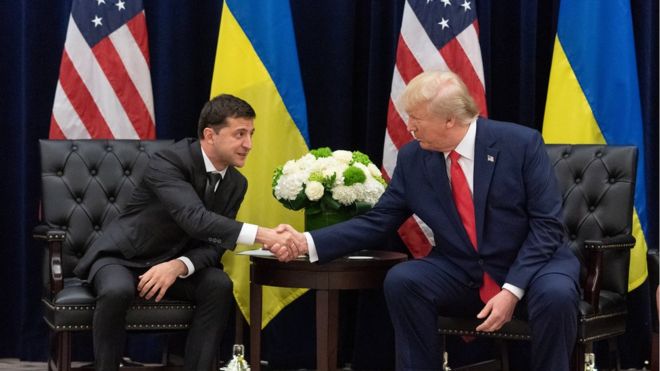 EPA
EPA
You may have heard this one before - a controversy involving a foreign power could threaten the future of the Trump presidency.
Donald Trump is the subject of an impeachment inquiry over allegations that he improperly sought help from Ukraine to boost his chances of re-election.
But the story is fast-moving and complex. Let's break it down.

Mr Trump is accused of breaking the law by pressuring Ukraine's leader to dig up damaging information on a political rival.
In July, he urged his Ukrainian counterpart to investigate one of the frontrunners to take him on in next year's presidential election. This matters because it is illegal to ask foreign entities for help in winning a US election.
An impeachment inquiry that could see the president eventually removed from office is under way.
But there is a fierce debate about whether Mr Trump broke the law or committed an impeachable offence - he himself says he has done nothing wrong.

At the heart of this story is a complaint from an unknown whistleblower.
In August, an anonymous intelligence official wrote a letter expressing concern over Mr Trump's 25 July call with the Ukrainian president.
They said they had an "urgent concern" that Mr Trump had used his office to "solicit interference from a foreign country" in the 2020 presidential election.
A rough transcript of the call later revealed that Mr Trump had urged President Volodymyr Zelensky to investigate former US Vice-President Joe Biden, a frontrunner to take on Mr Trump in next year's election, as well as Mr Biden's son.
The call came shortly after Mr Trump had personally blocked releasing millions in military aid to Ukraine. His critics accuse him of using this aid as a bargaining tool, but the president denies this.
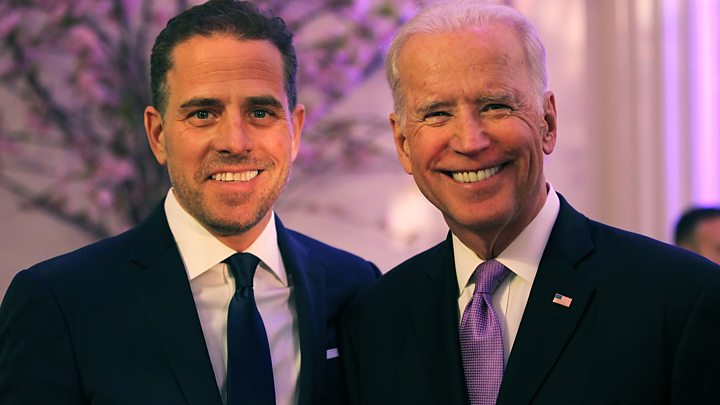
Mr Trump and his supporters allege that Mr Biden abused his power to pressure Ukraine to back away from a criminal investigation that could implicate his son, Hunter, who worked for a Ukrainian energy company.
But these allegations have been widely discredited. There is no evidence that Mr Biden took any action to intentionally benefit his son, nor is there any evidence of wrongdoing by Hunter Biden.
Congressional Democrats say the phone call is proof that Mr Trump broke the law by seeking foreign help to try and smear Mr Biden ahead of the election.
But there has been some debate over whether soliciting opposition research from a foreign government constitutes an impeachable offence. President Trump has dismissed the growing controversy as a "witch hunt".
Regardless, the July call is now at the centre of an effort by Democrats to expel Mr Trump from office. But for it to be successful, members of his own Republican party will have to turn against him.

It was supposed to be the kind of call a president makes multiple times a year.
Mr Trump says he called his Ukrainian counterpart Volodymyr Zelensky on 25 July to congratulate him on his recent election victory. Mr Zelensky, a former TV star with no political experience, was elected president in a landslide win in April.
But an anonymous whistleblower, reported to be a CIA official, felt there was something more serious in their exchange. They filed a formal complaint to the Senate on 12 August explaining why they were so concerned.
In their letter, which has since been released to the public, the whistleblower admitted that they did not directly witness the call but said accounts shared by other officials had painted a consistent picture.
For context, about a dozen people are reported to have listened in on the conversation, including Secretary of State Mike Pompeo.
It's important to note that the call occurred days after Mr Trump directed the US government to withhold about $391m (£316m) in military aid to Ukraine. Democrats argue this aid was used as a bargaining chip to pressure the new government in Kiev, but Mr Trump denies this.
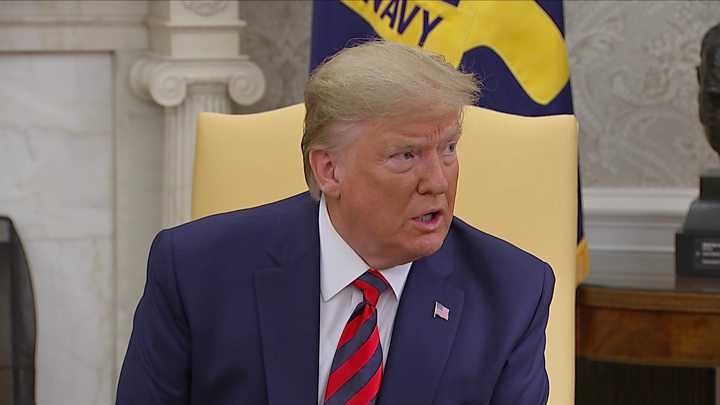
The whistleblower's complaint alleges that the president used "the power of his office to solicit interference from a foreign country" in next year's presidential election (more on this later). They also alleged that White House officials had been "deeply disturbed" by the call and acted to "lock down" all details of it.
Soon enough, Mr Trump pushed back hard against the complaint. He promised to release a "complete, fully declassified and unredacted transcript" which he said would prove the call had been "totally appropriate".
But the details disclosed by the White House were notes of the conversation taken by officials who listened in. It was not a full, verbatim, account and it did little to quell the spiralling controversy.
The transcript showed that Mr Trump had urged Mr Zelensky to investigate discredited corruption allegations against former Vice-President Joe Biden, a 2020 Democratic frontrunner, as well as Mr Biden's son.
Mr Trump and his allies have been suggesting that Mr Biden, as Barack Obama's vice-president, encouraged the firing of Ukraine's top prosecutor because he had been investigating an energy company which employed Hunter Biden.
There is no evidence that this was the case. The Ukrainian prosecutor who replaced the one who was fired told us at the BBC that there was no reason for Ukraine to investigate the Bidens and that any corruption with the company happened before Hunter Biden joined.
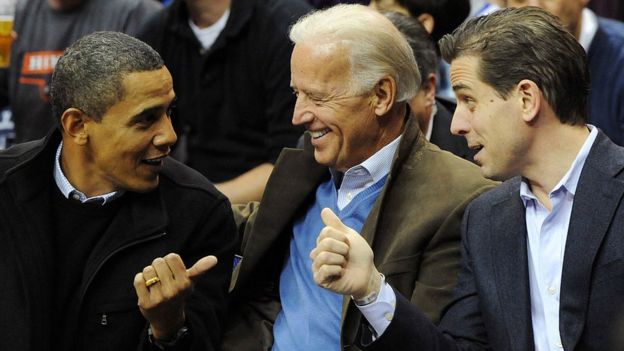 POOL/GETTY IMAGES
POOL/GETTY IMAGES
Mr Trump pressing a foreign leader to investigate these allegations is significant. This is because Mr Biden is the current favourite to win the Democratic nomination and, if chosen, he would be the man facing off against Mr Trump for the presidency in November 2020.
As Mr Biden is his biggest rival for the presidency, it opens Mr Trump up to claims he was working with a foreign power to smear a political rival and influence the election. This - crucially - is against the law.
This is not the first time Mr Trump has been scrutinised over his foreign connections. His 2016 election campaign was investigated over its alleged ties to Russia. The inquiry did not establish a criminal conspiracy to influence the election, but it also did not exonerate the president.
- Who listens in on a president's phone call?
- Ukraine has 'no jurisdiction' to investigate Bidens
- How easy is it to impeach a president?
The Democrats have launched a formal impeachment inquiry and have spared no time in getting to work. House Democrats have already demanded that five department officials - including the former US ambassador to Ukraine and Mr Trump's special envoy to the country - appear for depositions in October.
The president's personal lawyer, Rudy Giuliani, was subpoenaed for documents relating to Ukraine. Mr Giuliani has been central in pushing the allegations against the Bidens. Secretary Pompeo was also served with a subpoena.
So how does the impeachment process work?
Impeachment is the first part - the charges - of a two-stage political process by which Congress can remove a president from office. If the House votes to pass articles of impeachment, the Senate is forced to hold a trial.
A Senate vote requires a two-thirds majority to convict. As it stands, this is unlikely given that Mr Trump's party controls the chamber. Unlikely, but not impossible.
- Trump impeachment: Pompeo accuses Democrats of 'bullying'
- Trump's Ukraine call: Did president ask for 'a favour' in return for aid?
- Biden team says Trump's taunts 'beneath dignity of the office'
- Trump impeachment: Who's who in whistleblower story?
- Trump impeachment inquiry: Dissecting the phone call behind it
- Who listens in on a president's phone call?
US & Canada
Trump angrily lashes out at impeachment inquiry
- 2 October 2019
- US & Canada
US ex-cop who killed neighbour jailed for 10 years
- 2 October 2019
- US & Canada
Bernie Sanders halts campaign after chest pain
- 2 October 2019
- US & Canada

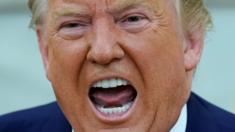






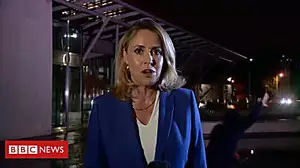



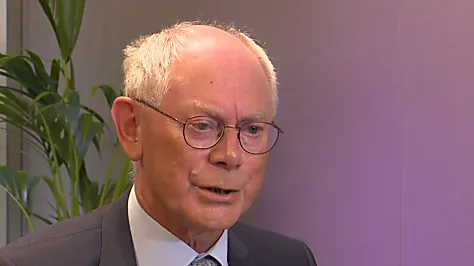




![[Pics] Countries That Are Making The United States Look Bad [Pics] Countries That Are Making The United States Look Bad](https://images.outbrainimg.com/transform/v3/eyJpdSI6IjhjMTM1OWFiMjMyNzVmZTFmZWYxYzJhNDJmMmYyNDY1NjlmMjZkYWVjZTEwZDJjNzFhN2E4ZWVjNWUxYjU5ZGEiLCJ3IjoxNjAsImgiOjkwLCJkIjoxLjUsImNzIjowLCJmIjo0fQ.webp)
![[Photos] Cat Keeps Stealing Neighbor's Newborn Puppies - Then He Realizes Why [Photos] Cat Keeps Stealing Neighbor's Newborn Puppies - Then He Realizes Why](https://images.outbrainimg.com/transform/v3/eyJpdSI6ImM0NzEyYjBkZTIxNzg0MzEzYmI0NDEwZTMxNDY4MjllNzFiN2U1ZTNlMmMwYzc2MjlmODk4YmNmZGQ2ODQ4ODMiLCJ3IjoxNjAsImgiOjkwLCJkIjoxLjUsImNzIjowLCJmIjo0fQ.webp)
![[Photos] If You See This Fish, Get Out Of The Water Immediately [Photos] If You See This Fish, Get Out Of The Water Immediately](https://images.outbrainimg.com/transform/v3/eyJpdSI6Ijk3YjYyYmE3MzE3YjFlMzEzMzEwMWUxMTI2ZDhiNTk2Y2I0MjhmMjMyYWRjNjBkYzUyMzdhOTAxNGVkMTBmMjciLCJ3IjoxNjAsImgiOjkwLCJkIjoxLjUsImNzIjowLCJmIjo0fQ.webp)


No comments:
Post a Comment